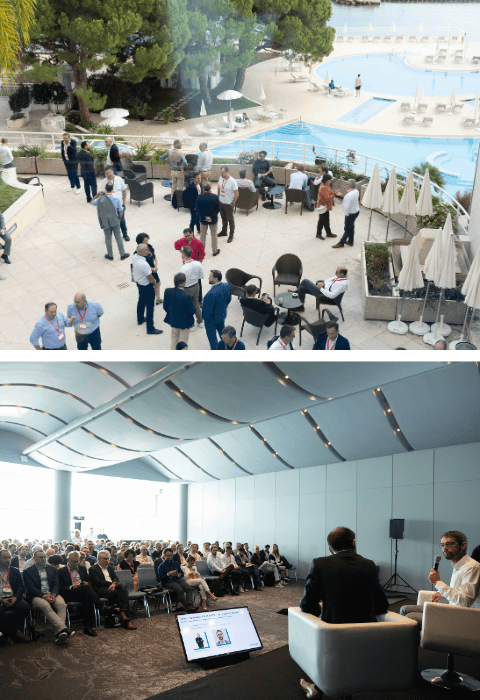Le Before 2025 edition: 6-8 october 2025
Created in 2017 as a continuation of Les Assises, Le Before immediately established itself as a much-awaited strategic meeting for decision-makers in the cybersecurity market.
A select group of participants are invited to reflect on and debate the future of the sector.
The philosophy behind Le Before:
Who was present at Le Before 2024?

- As a guest: you are selected and invited exclusively by Comexposium One to One. You'll be there to co-construct, discuss, share and project yourselves into the future, to tackle the major issues facing the sector, the problems, needs and expectations of tomorrow, etc.
As the number of guests invited to the Before is very limited, please contact the visitor team ([email protected]) if you would like to attend. Your request will be considered on the basis of your profile, the number of registrants per sector and the number of places available.
- As a partner: Le Before is open to all Les Assises partners, with two participation packages:
- Either with a speaking slot (which includes participation as a speaker at one of the round tables on the programme)
- Or as participants: 100% networking
Partners benefit from:
- A reserved lunch table (for 8 people, including 6 guests chosen by the partner)
- Access to the commissions and meet ups for unrivalled discussions with guests in small groups
- Tailor-made support
Round tables and commissions
The editorial committee, made up of the chairmen and moderators, defines 6 key topics to be developed at Le Before. The idea is to take a step back, because Le Before is the ‘lighthouse’ of Les Assises.
These six topics will be developed on site:
- Firstly, with round-table discussions aimed at taking stock of the issues facing the sector and defining the main areas of work to be addressed by the committees.
- Then there are the commissions, which provide an opportunity for participants to exchange ideas during concrete collaborative work sessions on the subjects.
- The results of each committee's discussions are summarised in a report, presented on the Wednesday morning of the conference opening and made available after the event.

Meet-ups


